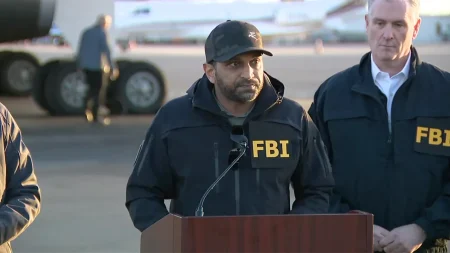ICC Finds Justice in Darfur: First Janjaweed Commander Convicted
In a landmark decision that brings a measure of justice to countless victims, the International Criminal Court (ICC) has delivered its first conviction related to the Darfur atrocities that shocked the world nearly twenty years ago. A former Janjaweed militia commander has been found guilty for his role in the widespread violence that devastated communities across the Darfur region of Sudan. This historic verdict represents a crucial step in the international community’s long-delayed response to one of the most horrific humanitarian crises of the early 21st century, sending a powerful message that accountability for mass atrocities remains possible even decades after the crimes were committed.
The conviction centers around the brutal campaign waged by the Janjaweed militia, a group of Arab fighters backed by Sudan’s government under then-President Omar al-Bashir. Beginning in 2003, when non-Arab rebel groups launched an insurgency against the government citing discrimination and marginalization, the Janjaweed response was devastating in its scope and brutality. The militia systematically targeted civilian populations from primarily non-Arab ethnic groups, burning villages, conducting mass killings, perpetrating sexual violence, and forcing millions to flee their homes. The United Nations estimates that around 300,000 people died in the conflict, while approximately 2.7 million were displaced, creating what was then described as the world’s worst humanitarian crisis. Throughout these events, the Sudanese government consistently denied directing the Janjaweed’s actions, despite substantial evidence to the contrary.
For the survivors and families of victims, this conviction represents more than just legal proceedings in a distant courtroom—it acknowledges the reality of their suffering after years of denial. Many had lost hope that anyone would ever be held accountable for the violence that tore apart their communities and forever altered their lives. The path to this verdict has been extraordinarily long and filled with obstacles, including Sudan’s refusal to cooperate with international investigators for many years, the challenges of gathering evidence in a conflict zone, and the political complexities that repeatedly delayed meaningful action. For those who lived through the terror of Janjaweed attacks—watching their homes burn, losing family members, enduring sexual violence, or being forced to flee to overcrowded refugee camps—this conviction serves as official recognition that the world has not forgotten what happened in Darfur.
The ICC’s success in securing this conviction demonstrates the persistence of international justice, even when immediate accountability seems impossible. The Court, established in 2002 as the world’s first permanent international criminal tribunal, has faced significant challenges in fulfilling its mandate to prosecute genocide, crimes against humanity, and war crimes. Critics have pointed to its limited resources, the non-participation of major powers like the United States, Russia, and China, and its historical focus on African conflicts as limitations to its effectiveness. Yet despite these constraints, the Court has continued its work, often proceeding with investigations and prosecutions that span many years. This Darfur conviction highlights the ICC’s critical role in addressing impunity for the most serious international crimes, particularly in situations where national judicial systems are unwilling or unable to hold perpetrators accountable.
Looking beyond this individual case, the verdict raises important questions about the future of accountability for mass atrocities in Sudan and elsewhere. The situation in Darfur remains volatile, with violence resurging in recent years amid Sudan’s broader political instability. Following the 2019 overthrow of Omar al-Bashir, who himself faces ICC charges for genocide and crimes against humanity, there were brief hopes for a new era of cooperation with international justice mechanisms. However, subsequent military takeovers have complicated these prospects, leaving uncertainty about whether other alleged perpetrators will ever face trial. This conviction, while significant, represents just one piece of a much larger justice puzzle—one that includes not only criminal accountability but also truth-telling, reparations for victims, and institutional reforms to prevent recurrence of atrocities.
For the international community, this verdict serves as both a reminder of past failures and a call to renewed commitment. The world largely stood by as the Darfur genocide unfolded, with diplomatic efforts stalled by geopolitical interests and semantic debates over whether the violence constituted genocide. The delayed justice for Darfur victims underscores the need for more effective and timely responses to mass atrocities, along with stronger support for international justice mechanisms. As conflicts and humanitarian crises continue to emerge across the globe, from Ukraine to Ethiopia, Yemen to Myanmar, this conviction demonstrates that accountability remains possible, even when justice is delayed. For the people of Darfur, while no court verdict can fully heal their wounds or restore what was lost, this milestone offers a measure of vindication and hope that truth and accountability will ultimately prevail over impunity.










